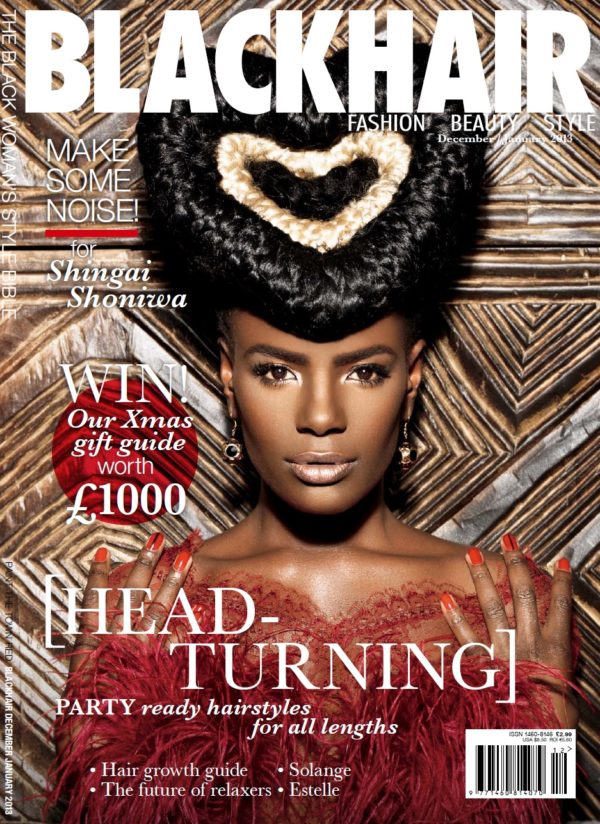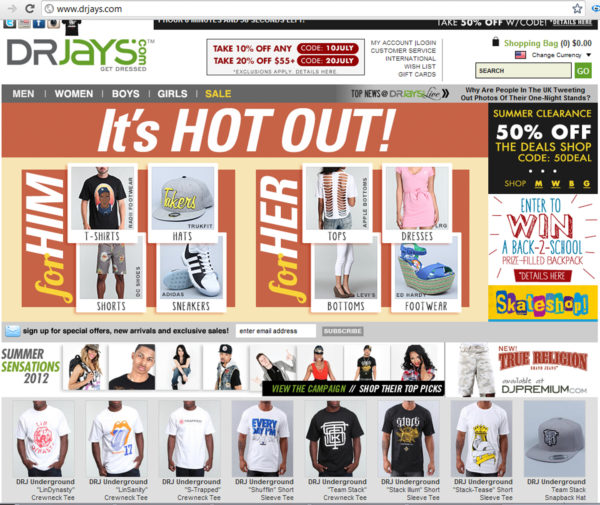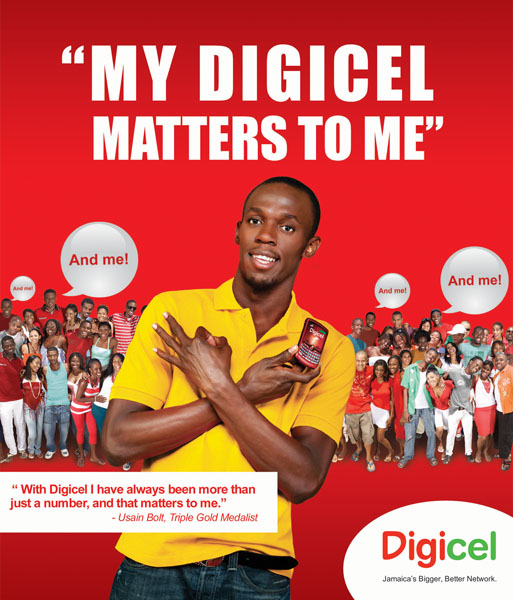BET, George Foreman Grills and Dark & Lovely No Lye Relaxer have a commonality: They’re not as black as you think. For the confused, theBVX ( which like Black Voices is NOT black-owned) has compiled a shocking list of 10 things you thought were black owned but actually aren’t.


If black is in the name, it must be black owned, right? The network was founded by an African American, Robert Johnson, in the ’80s, but in 2003, BET was sold to Viacom, which also owns MTV and VH1. The sale made Johnson one of the first black billionaires. Ballin’!
2. Def Jam Records
Def Jam Records Is White Owned
The label, born out of a college dorm room and built on MCs like Run-DMC, Jay-Z and Kanye West, is commonly associated with its co-founder, Russell Simmons, who escaped a financial mishap by selling 50 percent of the label to Polygram in 1994. In 1999, Russell sold his stake in the business to Universal Musical Group for $100 million. No wonder the label’s more Rihanna than raps these days.


If you’re into urban wear, then you may already know that Marc Ecko is a thirtysomething New Jersey native who never tried to pass for black. Instead the man whose line was once considered “too white” or “too black” for some retailers has attracted multiethnic consumers by cleverly targeting urban markets. But where does the rhino fit?
4. Jimmy Jazz
The 20-year-old company, which has more than 120 stores throughout the United States, housing lines like Baby Phat, Rocawear and Coogi, was founded by James Kherzie. The young Brooklynite opened the store as an alternative outlet for hard-to-find urban brands. Despite hip-hop’s lyrical mentions of the brand, the name is based on the song ‘Jimmy Jazz‘ by punk rockers The Clash. London calling?
5. Black Planet
Black Planet is white owned and they are playing on everyone’s intelligence. The site is the largest Black Network on the worldwide web, and they have the audacity to post a topic about other companies that are not Black owned and yet they don’t mention themselves in the list. These white corporate assholes always play on the intellect of Black people. We have to do our research. Stop supporting these white owned companies who are exploiting Black people because they really believe that you guys are dummies!
6. Ebony Magazine
Ebony magazine was one of the first Black owned magazine companies. But they sold to white people. Ebony magazine is no longer Black owned and if you read their content, it is not the true voice of Black people and they have been criticized many times for their biased judgement of Black issues and exploitation of Black women.
7. Essence
Essence, launched in May 1970, was a black-owned magazine for black women. In 2000, Time Warner Inc. purchased 49 percent of Essence Communication Inc., the publishing company that publishes Essence. It 2005, Time Inc. agreed to buy the 51 percent it didn’t already own, adding the African-American women’s lifestyle publication to its magazine division.
8. Vibe
Originally founded by Quincy Jones in 1993, Vibe magazine was bought and sold by several private equity firms before most recently landing in the portfolio of Spin Media. Spin Media also owns Concreteloop.com and Rap-Up.com.
9. Black Hair
Black Hair is “an international bimonthly magazine for the style-conscious black woman” owned by Haversham Publications Ltd, a leading U.K. publisher of hair and beauty magazines.
10. Black Beauty and Hair
Black Beauty and Hair is “the leading hair and beauty magazine for women of color throughout the U.K. and Europe.” The bimonthly publication is owned by Hawker Publications Limited.
11. XXL and King
XXL magazine is touted as the new voice of the hip-hop generation with a focus on “music, style, sports, and politics with intelligence, sophistication, integrity and, most of all, respect.” King is a monthly men’s magazine geared toward African-American and urban audiences. Both properties are owned by Stanley R. Harris of Harris Publications.
12. SoftSheen-Carson
In 1964 Edward and Bettiann Gardner founded Soft Sheen Products Inc., which produced a complete range of ethnic hair-care products. In 1997, Soft Sheen employed 400 people and earned sales of close to $80 million.
July 1, 1998 the L’Oreal Group, the world leader in cosmetics and hair care, announced the acquisition, through its U.S. subsidiary Cosmair, Inc., of Soft Sheen Products, Inc. In 2000, L’Oreal purchased Carson, Inc. and merged Carson with Soft Sheen to form SoftSheen-Carson.
A sample of products developed under SoftSheen includes: Mizani, Dark and Lovely, Optimum Care and Roots of Nature.
13. African Pride
African Pride “addresses the critical hair care needs, styling, and desires for consumers of color,” according to the company website.
African Pride, along with Dream Kids, ElastaQP, Profectiv, Relax & Refresh, GrowthRenew, and Profectiv Professional are owned by Strength of Nature Global, LLC.
Other notable mentions not owned by black people: Ultra Sheen, Soft & Beautiful, Doo Gro, Dax, Creme of Nature, African Best, Pro-Line (Just for Me), Dr. Miracles.
14.TheGrio.com
15.TheRoot.com
16. BlackVoices.com
While the concept for The Grio was presented by two black men, David A. Wilson and Barion L. Grant, the property itself is owned by NBC News.
Educator, writer and author Henry Louis Gates, Jr. helped create The Root however it is owned by The Washington Post Co., through its online subsidiary, The Slate Group.
BlackVoices was originally founded by African-American entrepreneur Barry Cooper, but was later sold to AOL-Time Warner.
Black Entertainment Television (BET)
Bob Johnson founded BET in 1980. In 2001, he sold it to Viacom, which also owns MTV and VH1.
Dr. Jays
According to the company’s website: DrJays.com was created in 1999 to “enable us to share our passion for the urban lifestyle with millions of customers in the U.S. and abroad.” Elliot Betesh is the founder and owner of Dr. Jays.
17. Digicel
Digicel is a mobile phone network provider operating in 31 markets across the Caribbean, Central America and Oceania regions. The company is owned by Irishman Denis O’Brien, is incorporated in Bermuda, and based in Jamaica. It has about 13 million wireless users.
18. Vodacom
Vodacom, whose parent company is U.K.-based Vodafone, is the second largest company trading in Africa. Vodacom South Africa currently enjoys 58 percent of the South African mobile market, with around 23-million subscribers.
Also, just so there is no confusion, Burger King is white owned. So is Churches Chicken and Popeye’s Chicken. When we support Black wealth, we have to make sure that we are actually supporting Black businesses, and not just businesses that target us to sell to Black people and take away more financial spending from the Black community. We have to do better and learn not to trust faulty advertising or the media that turn lying to us a trillion dollar industry.




















The foundations of white america is lies and take whats not theirs. I am not surprised. Everything the African has created has been taken by white people. Most of it is due to forced sales. Like: if you do not sell to them they will send you a message that they will kill you and your family. Black wealth is the white mans larger threat.